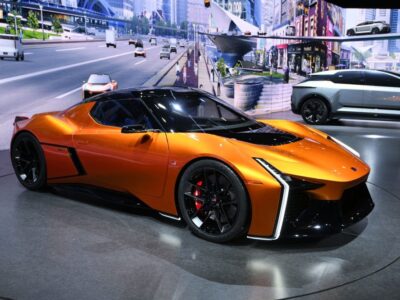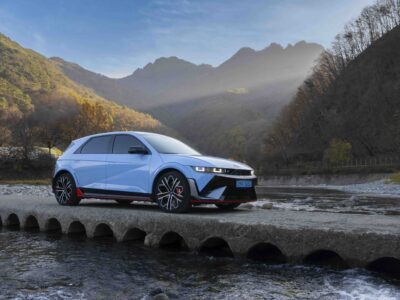(Bloomberg) —
Ford Motor Co. is unveiling its first version of an all-electric pickup truck police cruiser.
The F-150 Lighting Pro Special Service Vehicle, the new model shows the car manufacturing giant continuing to capitalize on the growth of the electric vehicle market. Earlier this month, the company announced that it secured enough battery supply to manufacture more than half a million electric vehicles a year by the end of 2023.
Since becoming CEO, Jim Farley has bumped spending on EVs up to $50 billion in an effort to push battery-powered vehicles to be half of Ford’s global sales by 2030.
Read More: How Ford’s Electric F-150 Pickup Truck Will Cut Carbon Pollution
Police departments have always been a reliable and lucrative customer base for the Dearborn, Michigan, based car group – cop utility vehicles provide stable profits and free visibility.
Ford’s announcement, however, comes after some law enforcement agencies scaled back on vehicle purchases due to budget cuts during the coronavirus pandemic and amid activist backlash from the Black Lives Matter movement.
“We are seeing a lot of interest in electric vehicles from police agencies since launching Mach-E,” the company said in an emailed statement. “F-150 Lightning Pro Special Service Vehicle marks the next step in our efforts to serve law enforcement into an electric future.”
To lure public agencies, municipalities and police departments into purchasing fleets of its new EVs, Ford is offering “flexible financing options” as well as making it easier for them to install charging stations to assist in their transition to electrified fleets.
The automaker already has a history of coming out with “green” products for cops. In 2017, Ford modified its Fusion sedan into the first hybrid gasoline-electric vehicle to be “pursuit-rated,” meaning that it is able to chase down criminals on crowded city streets.
Ford has been developing an electric F-Series truck since 2019, trying to revolutionize a line that has brought in more than $40 billion in revenue annually. The decision to electrify the trucks came at a time when there was growing pressure to compete with Tesla and when other car makers made pledges to electrify their fleets.
(Updates with company statement in sixth paragraph.)
–With assistance from Keith Naughton.
To contact the author of this story:
Kevin Simauchi in New York at ksimauchi1@bloomberg.net
© 2022 Bloomberg L.P.





